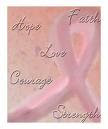In Most Cases, MRI Not Indicated for Breast Cancer Screening
Q: I'm still getting yearly screening mammograms, but I heard that breast MRIs are better at detecting breast cancer and have a lower radiation level than mammograms.
Should I start getting yearly MRIs instead?
A: Breast MRIs have very limited indications and have not been approved as a screening modality for most patients.
Screening MRIs are only indicated for those who are considered very high risk. You are considered high risk if you have a known gene mutation that significantly increases the risk for breast cancer (BRCA 1 or 2), if you are a probable carrier of this gene because of family history, or if you have a calculated lifetime risk of breast cancer greater than 20-25% (this is something your doctor can calculate for you).
"For most women at high risk, screening with MRI and mammograms should begin at age 30 years and continue for as long as a woman is in good health," according to the American Cancer Society. "But because the evidence is limited regarding the best age at which to start screening, this decision should be based on shared decision making between patients and their health providers, taking into account personal circumstances and preferences."
courtesy of www.healthlink.com.
Wednesday, March 26, 2008
Saturday, March 15, 2008
Diet and breast cancer: connection?
NEW YORK (Reuters Health) - A new study suggests that women who eat diets rich in meat and dairy may have a decreased risk of breast cancer, while those who bulk up on fiber, fruits and vegetables show a lower risk of ovarian cancer.
The findings, published in the International Journal of Cancer, add to questions surrounding the role of diet in women's risk of the cancers.
High alcohol intake has been consistently linked to breast cancer risk, but when it comes to other facets of the diet, studies have yielded conflicting results, according to the researchers on the current work, led by Dr. Valeria Edefonti of the University of Milan.
The findings, published in the International Journal of Cancer, add to questions surrounding the role of diet in women's risk of the cancers.
High alcohol intake has been consistently linked to breast cancer risk, but when it comes to other facets of the diet, studies have yielded conflicting results, according to the researchers on the current work, led by Dr. Valeria Edefonti of the University of Milan.
- The most important suggestions are:
- Maintain a healthy weight.
- Eat a diet that's low in fat and includes lots of fruits and vegetables.
- Avoid red and processed meats (ham, bacon, lunchmeat), simple carbohydrates, and salt.
- If you have a baby, breastfeed for at least the first 6 months.
- Don't smoke.
- Avoid alcohol.
- Do moderate exercise regularly (every day if you can).
- Besides helping to lower your risk of breast and other cancers, following these recommendations will improve your overall health. There's only one of YOU and you deserve the best health and life you can have. You're worth it!
Subscribe to:
Comments (Atom)







